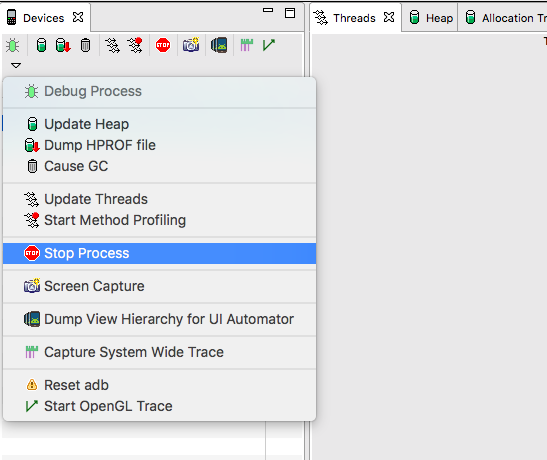Lets clarify your question.
But before we do that here is a fact about onSaveInstanceState - its gets called for various reasons such as:
- orientation change
- going from foreground to background (by clicking home or launching another activity or clicking recents)
- system is under low memory
Now, if your question is "how can i simulate the calling of onSaveInstance for just testing purposes" then Theo and Ted's answer is correct. Both changing developer settings option or pressing home will result in onSaveInstance being called.
But so would just changing orientation (as you noted in your question) - which leads me to believe you might be asking "how can i simulate calling of onSaveInstance method when system is under low memory pressure"
The short answer to this question is there is no automated way to simulate low memory condition. The above mentioned techniques only simulate calling of the onSaveInstanceState method not low memory conditions per se
Couple of caveats here.
The first caveat to this is that under extreme conditions the kernel will "uncleanly" kill your process to claim memory - meaning onSaveInstanceState will never be called. In this situations testing onSaveInstanceState is moot. There isn't much you can do about this scenario but the good news is that its a very rare event esp. for foreground activities.
The second caveat is that ActivityManager can reclaim your activity's resource by "killing it cleanly" i.e. your onSaveInstance will get called. This happens to activities that are not in foreground (i.e. not visible to the user so already in stopped state) and the system is under memory pressure.
On this second caveat, again you can't simulate this condition automatically. It can be done if you start bunch of heavy duty activities manually and hope the ActivityManager is forced to recycle one of your activities.
The bigger point to remember here is that there is no need to simulate low memory condition. As long as you are simulating how onSaveInstanceState is called you are automatically testing the condition where it might be called for low memory situations. And the easiest way to trigger this method is to change orientation on the emulator (ctrl-f11). And if you are using an actual device to temporarily change the developer settings ("Don't keep activities")

